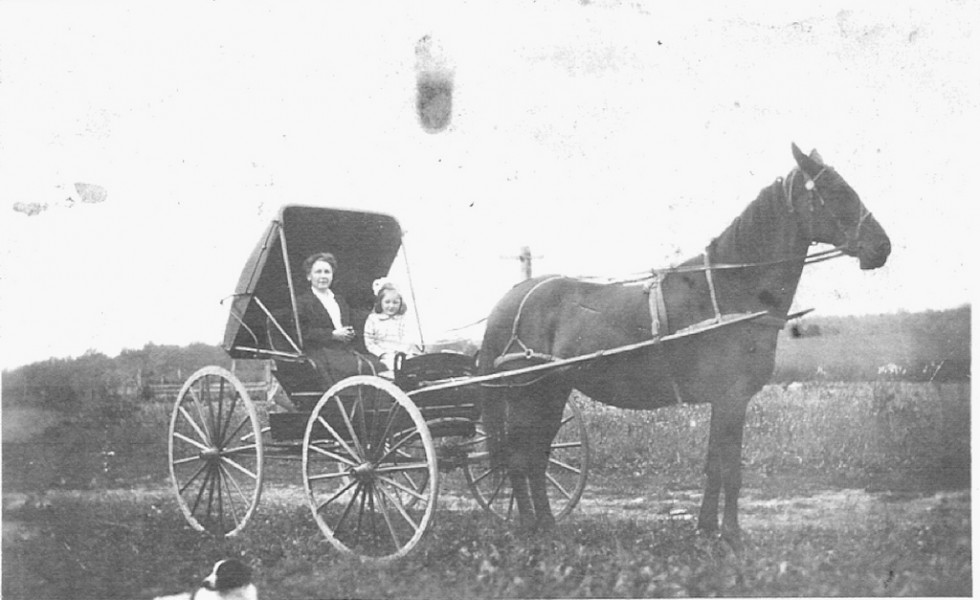How’d you like a buggy whip?
Posted on November 10, 2013

Henry Ford heard the jeers for years before his horseless carriage remade culture forever. Orville and Wilbur Wright were called bird brains before their dreams carried them over a North Carolina sand dune and mankind to distant galaxies.
They had thousands of predecessors. Archimedes was thought to have a screw loose. The Vatican saw Galileo as a heretic. Darwin was denounced from pulpits the world over. Still is.
Despite the bombast and bashing, history proved these oddballs right and the know-it-alls and naysayers all wrong.
Are we in American agriculture the nay-saying same; are we maligning and castigating anyone who questions or challenges “the way we do things”?
We are, and we’re doing it so often that we don’t even question it anymore.
For example, a meatpacker-funded effort is now underway to outlaw county of origin labeling (COOL) of U.S. food in U.S. markets. The reason is simple: the Meat Gang’s pony boys are stoking fears that Mexico and Canada, important sources of cheap livestock for U.S. meatpackers, would retaliate if COOL stands.
The threat may be real, but do we as a nation believe more strongly in “free trade”—actually corporate trade because companies do it, you and I don’t—than in our own farmers and ranchers’ birthrights and livelihoods?
We must because our commodity and farm groups unreservedly support free trade despite irrefutable evidence—a collective $8 trillion U.S. trade deficit since the 1993 passage of the North American Free Trade Agreement; the closing of 60,000 U.S. factories since 2000—that few Americans actually gain anything from it.
Moreover, if anyone, a modern day Galileo, say, chooses to look at the world and our role in it any differently, American ag orthodoxy excommunicates him or her without pause or thought.
That dogmatic certainty needs to be questioned because, as one old-timer liked to say on the farm of my youth, “If everyone’s thinkin’ the same, then only one person’s doing the thinkin’.”
Big Ag, however, doesn’t tolerate much independent thought. It has its own muscle, its self-funded enforcers, to ensure single-mindedness confronts new ideas or methods.
The latest proof of this “we’ll-do-thinking” approach came in late October when the Pew Charitable Trusts and Johns Hopkins Bloomberg School of Public Health issued a 122-page, fact-laced report that again questioned Big Meat’s massive use of antibiotics in its industrial production systems.
Twenty-four hours before the Pew report was released Oct. 22, however, something called the Animal Agriculture Alliance, an Arlington, VA-based lobbying group, issued a 24-page rebuttal to it without ever having seen or read the report.
What, antibiotic use in American agriculture not only improves animal health but makes Big Ag clairvoyant enough to compile, print and distribute a report denying a five-year study on antibiotics without even waiting to see it?
U.S. Farmers & Ranchers Alliance, the rich coalition of big farm groups and big corporate ag players, at least had the rural politeness to wait until Pew and Hopkins issued their report before it “mobilized its F.A.R.M. (Farmer And Rancher Mobilization) team” late Oct. 22.
The USFRA email to its “Rapid Responders,” however, did include a draft letter to the editor of any local newspaper that covered the Pew report so “responders” could address “popular misconceptions” about antibiotics without, of course, the Astroturf writer of the Astroturf letter having actually read the actual Pew report.
What is it about American agriculture that inspires farm and ranch groups to not trust American consumers? What do we fear?
Golly, it’s not like we’re selling buggy whips or maps of the solar system that show the earth at its center, right?
Right?
Share This